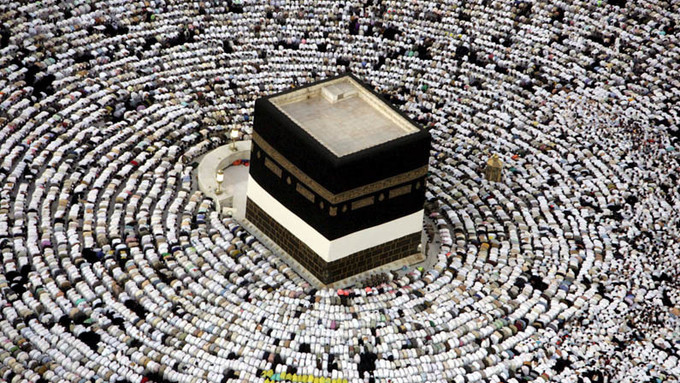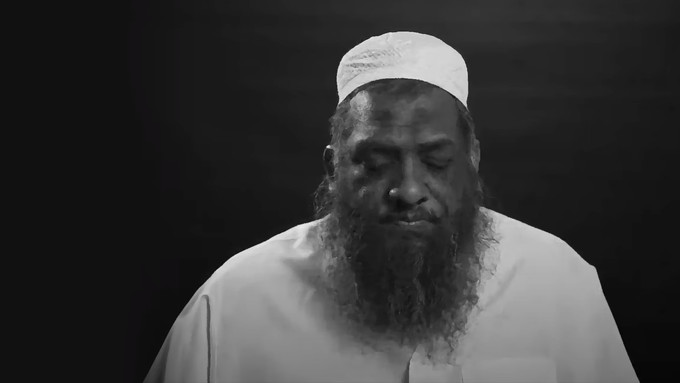Forbearance in Times of Madness
When we look at the entire spectrum of Prophetic Character (akhlāq), we realize that it is like a treasure chest filled with rubies, diamonds, emeralds and other dazzling gems. One of these glittering jewels is the Prophetic Quality of forbearance (ḥilm): a resiliency of patience and indefatigable steadfastness, such that the Prophet ﷺ never lost control of his emotions. His repeated demonstrations of forbearance astounded his enemies, for they were often the ones who would lose control of their emotional state while he remained calm and undisturbed. Despite their verbal, psychological and eventual physical assaults, not once do we find in the entire 23 years of documented sīrah, or even his entire life, that he ﷺ ever “lost it”. Those of us who haven’t read the sīrah (and especially those of us who have!) should appreciate this Prophetic ḥilm because he ﷺ went through challenges far worse than anything we will ever experience in our lifetimes.
The word ḥilm is also an interesting word because when one rewrites the trilateral root (ḥa-lām-mīm) backwards, it yields a trilateral root (mīm-lām-ḥa) that itself has two seemingly opposite verbs: one (malaḥa which yields the verbal noun of mulūḥ or malāḥah) which indicates something that is very salty or brackish, and the other (maluḥa which yields the verbal noun of mulūḥah) which indicates something that becomes very beautiful or elegant. The astute observer may therefore realize that displaying ḥilm is often very difficult to do, but when one is able to properly embody this characteristic, it becomes very beautiful indeed. Thus it should be no surprise that the noble wet-nurse of the Prophet ﷺ was named Ḥalīmah; her story prior to taking on the Prophet ﷺ was one filled with difficulty and hardship, requiring a tremendous amount of resiliency on her part, but one that eventually yielded the most beautiful gift that any woman in her position could ever receive.
The relevancy of understanding this Prophetic Characteristic is even more important in the time and context that we find ourselves in, especially with the chaos and confusion taking place domestically and internationally. We find that many of us as Muslims, for the sake of simplicity, often fall into displaying one of three emotions.
-
The first group is one that feels sadness and depression upon observing everything that’s happening. Most of us (hopefully) fall into this group. We feel sick and tired of recent events and it causes us to feel depressed. We see misguided actions undertaken by ignorant individuals in the name of Islam; we condemn, over and over, and we become weary by all the condemning that we have to do, feeling sickened that we have to apologize for things that we not only did not do, but would never endorse as Muslims. We worry about the future of the world, and what kind of world our children will have to grow up in, and this only makes us sadder. So we continue to go about our daily lives as best we can: we continue to worship Allah, observe the farḍ `ayn, abstain from the prohibited, be productive, ethical students/workers and serve our communities through religious and civic services as best as we can. But the depression is a reality that cannot be ignored.
-
The second group is one that has become disgusted by Islam and Muslims that they either feel that Islam needs a major reformation (a “Christmasization of Islam) or they wish to have nothing to do with Islam whatsoever. They feel it is difficult to be Muslim now, and see very little advantage (and indeed, a significant disadvantage) to openly be a Muslim in terms of worldly success and comfort. This manifests in misguided (and asinine) attempts to change the foundations of the religion, questioning whether “x” is really prohibited, such that the only analogy to represent this mindset is like one who is looking for light and heat in their home on a cold, wintry night but ends up lighting the house on fire in an effort to find light and heat.
-
The third group, which is an unfortunate reality but thankfully a fringe minority, is one that becomes frustrated and angry at all the events happening around the world that they respond with hatred and violence. As Muslims, we condemn any illegitimate act of violence, whether the perpetrators or victims or Muslim or not, and we mourn for the loss of any innocent human life. And we also revile any approach that uses emotions that are inconsistent with the paradigm of Prophetic Characteristics, especially the ones he ﷺ demonstrated in times of difficulty.
As Muslims, we should understand that none of the above three characteristics are compatible with Prophetic ḥilm. None of these three characteristics do anything for the service and advancement of Islam. It is not unnatural to feel any (or all) of these emotions towards widespread injustice and Islamophobia, but it is impermissible to remain or act upon these emotions and think that one is still in line with Prophetic Characteristics. To put it another way, one may feel free to have these emotions, but one can no longer say they are displaying Prophetic Character while doing so.
If we feel any or all of these three emotions, we would be well served by reminding ourselves of the following: “And seek assistance through patience and prayer" (Surah al-Baqarah, verse 45). Allah tells us that if we want Him to help us, these are the two prerequisite actions from our side that will bring about Divine Assistance. Some may rebut, asking “How will this help? How is that going to stop the bombings and drone attacks and loss of Muslim life all across the world?” Many may feel that doing these actions are a cop-out for not doing more. Perhaps this is why Allah immediately tell us: “…and indeed, it is difficult except for those who humbly submit (al-khāshi`īn), who are certain they will meet their Lord and they will return (to Him) "(Surah al-Baqarah, v. 45-46). Allah tells us that He will take care of us, but it will be appreciated by people of humble submission; in other words, it will only be appreciated by people of ḥilm.
The people of ḥilm know that despite all the craziness, Allah has not lost control of the universe. Many of us often think that Allah falls asleep at the switch (ḥāsha lillah!), and that’s why chaos occurs. This is because we have not read (and understood) what the Prophet ﷺ has told us about the end-times: that we should expect and prepare for confusion, tribulations and calamities. This is why he ﷺ told our master, Ḥudhayfah (may Allah be pleased with him), that he should hold onto the main group of the Muslims and avoid the fringe groups on the outer edges. This ranges from the perennialist types, who want to modify Islam until it becomes something else, to the extremist groups that want to use Islam to justify their bastardized political ideologies. We should reject both times because none of them are part of the Prophetic tradition.
Instead, when we see all this widespread chaos and confusion, ḥilm should be our motto. We shouldn’t act surprised at any of this because this is exactly what the Prophet ﷺ said would happen. When we read the aḥadīth about the end-times, such as the narrations that describe events such as the naked, barefoot destitute Bedouin competing with one another in the construction of tall and lofty buildings; widespread adultery and consumption of wine; people will be loath to give zakat; etc.—we can speak much about these sorts of narrations. So now when we see these narrations become actual realities, we act surprised and confused: How and why is this happening? Why didn’t anyone tell me? We should instead tell ourselves: “Yā aḥmaq (moron), your Prophet ﷺ told you this already.”
Paradoxically, what we should take from all this chaos that causes depression, confusion and anger, because we should understand the sīrah and we should understand what the Prophet ﷺ said would happen at the end-times, we should be reassured.
Why? Because we should first appreciate and take solace that our Prophet ﷺ was not a liar nor was he inaccurate: everything that he said would happen in the latter-days has come true (or will come true). There has not been a single thing about the end-times that is inconsistent with what he ﷺ said. It should reassure us that he does not speak from his whimsical desire (Surah al-Najm, verse 3), and it should put certainty (yaqīn) in us that we are following a Prophet ﷺ who spoke the truth and was accurate about what he said. We should instead consider that if our current times were wonderful, then it would mean that our Prophet ﷺ either spoke falsely about the latter times or made a mistake. So in a way, we should actually be reassured that things are not wonderful. The awfulness of our current times should remind us of the awesomeness of our Beloved ﷺ.
The second thing we should derive strength from is that perhaps Allah put us in these challenging situations where there is widespread Islamophobia and it is difficult to be a Muslim so that we can, inshallah, fulfill a Sunnah (Tradition) of all the Prophets (peace be upon them), including our Prophet ﷺ—the tradition of practicing Islam in difficult times when people don’t like you. This is a common theme to all Prophets (peace be upon them), especially our Prophet ﷺ, as they also had to face abuse and Islamophobia at every single point in their lives. As Western Muslims, we think we’re the first community to have faced Islamophobia, forgetting that the Muslims of 7th century Makkah faced far worse situations than we have ever faced (or ever will face). Their response was to seek assistance through patience and prayer with God – they kept on keeping on. And because they didn’t let their emotions get the best of them, especially the three destructive emotions that have been the focus of this essay, Islam survived during those grueling times.
The third idea that we should consider is that things are difficult because God is giving us an opportunity, despite our inadequacy and unworthiness, so that even some small effort of practicing our religion (performing the obligatory actions, avoiding the prohibited and attempting as many supererogatory practices we can) can be divinely accepted and multiplied. We should be encouraged by Prophetic statements that praise the position of those who practice Islam despite the difficulties present in latter-days. For example, the Prophet ﷺ told his Companions (may Allah be pleased with them): “You all are (living) in a time wherein if any of you left aside even one-tenth of what he has been commanded (to do), he would be destroyed; but there will then come a time wherein if any of you performs even one-tenth of what he has been commanded (to do), he would earn salvation."1 From this, we understand that the Companions (may Allah be pleased with them) were graded on a higher curve than us; for us, perhaps simply doing the basics of the religion as best we can is sufficient for salvation. We should take solace that despite all the madness of our times, the opportunity for eternal salvation is still on the table.
Instead of demonstrating the three aforementioned destructive emotions, the people of forbearance instead embrace the three aforementioned redemptive emotions. Just as our Prophet ﷺ never lost control of his emotional state, we too must strive to keep a level head during these times of madness. It’s a matter of perspective: we can either choose to be nervous and afraid or we can continue to take solace and remain positive. For example, if a Trump presidency means that Muslims get ID cards, we should feel happy that it’s easier to recognize one another, and we know who we should be making da’wah to; if it means we can placed into a concentration camp, then we take solace that God is allowing us to fulfill a Sunnah of the Prophet ﷺ, for he too was placed in boycott and confinement for two years in the Valley of Abu Talib; and if it means that practicing Islam becomes even more difficult, then we should smile that we are getting an opportunity to walk the footsteps of many Muslims that came before us. Inshallah, it won’t come to that, because we always should pray for options of ease and comfort; but if it does, we must remain upon the Prophetic path of forbearance.
In the end, we can only focus on the things we can do and can control— seeking assistance through patience and prayer, which will be difficult except for the people of humility. It is arrogance of the worst order to demand that Allah do something when we haven’t done anything. The people of humility are those who realize that they are not powerless. Their seemingly feeble prayer, supplications, avoidance of the prohibited and utterances of remembrance have the power to delay the coming of the Hour.2 We must continue to be Muslims and civic citizens to the best of our ability, in the service of Allah and all of His Creation, because that is what the people of ḥilm do because they follow a Prophet ﷺ who embodied that same ḥilm.
To demonstrate ḥilm is initially brackish and unpleasant. But when we embrace whose ḥilm we are trying to emulate, it should inspire us to maintain that forbearance until it becomes something transcendently beautiful. Or in other words, keep on keepin’ on, even when others keep on fallin’ off.
1. A well-known Ḥadīth narrated by Abū Hurayrah and found in several collections, including Collection of Tirmidhi. There is some debate about the strength of this ḥadīth. As we are not using this ḥadīth as a sole-basis for Law, we may use it freely for the purpose of targhīb wa’l-tarhīb (encouragement and discouragement).
2. A well-known Ḥadīth found in the Mustadrak of al-Ḥākim, among other Collections as well: “The Hour shall not occur so long as it is said in the earth, ‘Allah, Allah!’”.
Faith & Spirituality Related Articles

5 Practical Steps To Get You Ready for Ramadan
As Ramadan is less than a month away, we might feel we often haven't done enough to prepare for it. Here are 5 things we can do right now during Shaban to make sure that we get the most out of Ramadan. The Prophet (Peace & Blessings upon Him & His Family) supplicated,” O Allah give us the blessings of Shaban and give us the treasure of Ramadan.”

Hajj at Home: Kindling the Spirit of Arafah
Even if we are not on Hajj this year, our situation is no different. We navigate through the complexities of our daily life, immersed in the never-ending responsibilities of work and family, inundated with the intrusions of technology and social media into every minute of our lives, moving from place to place and idea to idea.
